
Here's my edition of Top 10 links from around the Internet today.
We have a Monday-Wednesday-Friday schedule for Top 10. Bernard will be back with his version this Wednesday. We will have another guest posting on Friday.
As always, we welcome your additions in the comments below or via email to david.chaston@interest.co.nz.
See all previous Top 10s here.

1. Not over-valued at all
The Economist's Big Mac index is updated again as at July.
It's an easy way to introduce the concept of "purchasing power parity" - but its not the last word on the subject by any means.
But is does show that perhaps our dollar is not as 'over-valued' as the RBNZ thinks.
Or maybe it does show that.
Just click on the link for an explanation of the GDP-adjusted data they have introduced.
Then it shows the NZD about 16% over-valued.
Graeme Wheeler may not argue with that scenario.
Burgernomics was never intended as a precise gauge of currency misalignment, merely a tool to make exchange-rate theory more digestible. Yet the Big Mac index has become a global standard, included in several economic textbooks and the subject of at least 20 academic studies. For those who take their fast food more seriously, we have also calculated a gourmet version of the index.
This adjusted index addresses the criticism that you would expect average burger prices to be cheaper in poor countries than in rich ones because labour costs are lower. PPP signals where exchange rates should be heading in the long run, as a country like China gets richer, but it says little about today's equilibrium rate. The relationship between prices and GDP per person may be a better guide to the current fair value of a currency. The adjusted index uses the “line of best fit” between Big Mac prices and GDP per person for 48 countries (plus the euro area). The difference between the price predicted by the red line for each country, given its income per person, and its actual price gives a super sized measure of currency under- and over-valuation.
2. Where's the expected wage growth?
The RBNZ is on inflation watch but thinks it has it under control. Inflation often rises when pay increases faster than productivity and more money chases the available goods and services. But as we all now know, inflation is dead in the water, even with [much] more money in the international economy.
Some say its because of 'secular stagnation' - that is, the tradable sector is substituting low priced goods from other countries.
But others are worried that the economic recoveries like here, in the US and recently in the UK aren't translating into higher wages. (Included in the 'worried' camp are the Fed and the BofE - but not the RBNZ.)
Reuters thinks it might be just around the corner. So the Fed and BofE will cheer. But what will the RBNZ do when it arrives?
For both Fed Chair Janet Yellen and BofE head Mark Carney, however, wage growth has become an anchor that could keep rates tied down. Yellen has said wage growth that keeps pace with both inflation and productivity is one of her key markers for a healthy labor market, and she has warned that anything short of that means household income, consumer spending and the economy overall would underperform.Carney has tracked her language closely, noting in a recent parliamentary hearing that the lack of progress on wages "suggests to me ... that there has been more spare capacity in the labor market than we previously had thought."In Japan, the mammoth stimulus program launched by the Bank of Japan - $2.2 trillion overall - has created only the first small signs of wage growth after a two decade battle with deflation. The massive stimulus and other aspects of the country's new economic policies have led to booming corporate profits. Officials now hope companies will share the fruits of that success.

3. Why Auckland is 'rich' (?)
A couple of economists argue that large cities are more unequal than the nations that host them because large cities disproportionately reward talented superstars and disproportionately ‘fail’ the least talented. Cities should thus be the primary focus of policies to reduce inequality and its adverse consequences for society. But then they say:
First, nominal income inequality (which is measured) is not equivalent to real income inequality (which is not directly measurable). Insofar as large cities offer a wider range of cheaper goods and services than small cities do, and if this pattern is especially pronounced for the least well off, then actual real urban inequality may be less severe than nominal inequality. Actually, Harvard economist Edward Glaeser claims that the large poverty rates of central cities are a testimony of their success, not their failure: they attract poor households by catering better to their needs.
Second, fighting (urban) inequality does not require aggressive local redistributive policies, for such policies attract the poor and repulse the rich, leading to the bankruptcy of local governments, such as the fiscal crisis that hit New York City in the 1970s. State-wide or nationwide policy coordination is required.

4. Is it worth US$28 bln ?
Financial markets love to add up the cost of stuff. And they are adding up what the cost to Russia is of the Ukraine crisis. More from Bloomberg:
The cost of protecting Russian bonds against default for five years rose about 23 basis points to 207 basis points this month, the highest among the world’s largest emerging markets including Brazil, India and China, according to data compiled by Bloomberg. Russia had its credit rating cut to BBB-, the lowest investment grade ranking, in April by Standard & Poor’s.
Russian corporate debt sales overseas are down 67 percent this year just as cheap global borrowing costs spur record issuance worldwide, the data show.
In currency options, traders are the most bearish on Russia’s ruble among 23 developing-country currencies after Argentina’s peso. Investors are paying 2.9 percentage points more for the rights to sell the ruble over those to buy. That’s about twice the premium for the Polish zloty and Colombian peso, according to so-called three-month risk reversal data compiled by Bloomberg.
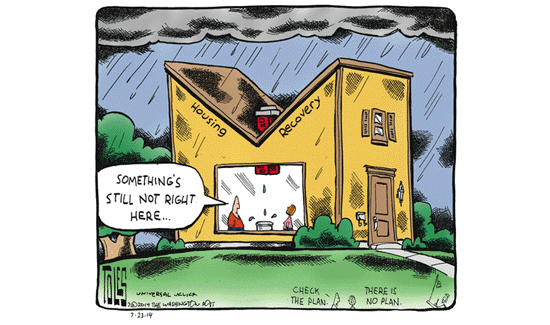
5. End of the line
Like the UN, the World Bank is trying to remain relevant and about to undergo yet another re-organisation. It has 10,000 employees !
But no-one seems to like or respect it anymore. The emergence of a new 'BRICS Bank' is a vivid indication of how it is viewed in the developing world.
But is it needed anymore (apart by its tax-free employees) ? BusinessWeek has its doubts:
The World Bank is fighting for relevancy now that many of its customers don’t need it anymore. The developing world’s rising middle class is attracting private capital and reducing the need for countries to borrow from the World Bank. More than $1 trillion a year now flows from the private sector and major philanthropies to developing economies. Official development assistance, by contrast, totals about $125 billion. Last year, the World Bank’s new lending came to less than $35 billion.

6. 'Looks ok to me'
High stock prices, low economic growth. That suggests to some "irrational exuberance". Not not to Anatole Kaletsky - he says exuberance is not always irrational and claims Janet Yellen sees the current equity markets the same way. And that is far removed from the author of the yardstick that says we should be worried, Robert Shiller.
Why then are investors not panicking? There are many theoretical objections to the Shiller’s approach. His arbitrary 10-year averaging takes no account of the length and depth of business cycles and makes no allowance for accounting write-offs. The Shiller price-earnings ratio will continue to be upwardly biased until 2019 because of the longest recession in U.S. history and the biggest-ever corporate write-offs then suffered by U.S. banks.
Even more damning is Shiller’s failure to adjust earnings for accounting changes and the impact of inflation on inventory valuations, distortions that greatly exaggerated profits in the 1970s and produced understated price-earnings ratios.
The most fundamental objection embraces all these technical arguments: Any comparison of valuations covering long periods is meaningless if it fails to take into account vast changes in technology, economic policies, interest rates, social and political structures, and taxes. Why, after all, should the returns expected today on Wall Street bear any relationship to what investors earned in the agricultural booms and busts of the 1880s or the Great Depression of the 1930s or the great inflation of the 1970s?
Time will tell whether the new Wall Street records are evidence of irrational exuberance or simply a reasonable response to gradual economic recovery, as suggested by Federal Reserve Chairman Janet Yellen (correctly in my view).
But one piece of evidence we can safely ignore in making this judgment is the Shiller price-earnings ratio.
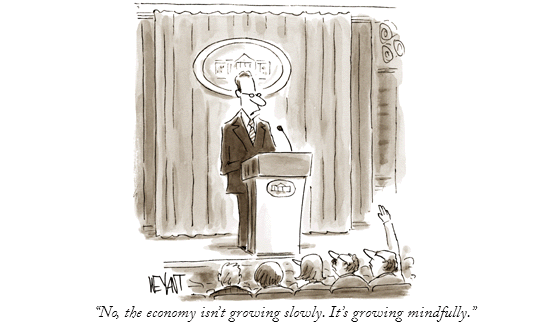
7. After the US dollar
Many countries bristle accepting the US dollar at the heart of world trade. But replacing one national currency with another - the remnimbi ? - is not much of an advance.
Columbia (NYC) professor José Antonio Ocampo, former United Nations Under-Secretary-General for Economic and Social Affairs and former Finance Minister of Colombia (the country), suggests we use the IMFs Special Drawing Rights. An idea whose time has finally come, or just another impractical 'wish' by state elites?
The simplest way to fulfill this vision would be to allocate SDRs as a full reserve asset, which countries could either use or deposit in their IMF accounts. The IMF would use those deposits to finance its lending operations, rather than having to rely on quota allocations or “arrangements to borrow” from members.
Other provisions could be added. To address developing countries’ high currency demands, while enhancing their role in the creation of international money, a formula could be created to give them a larger share in SDR allocations than they now receive.
The private use of SDRs could also be encouraged, though that would likely be met with strong opposition from countries currently issuing international reserve currencies, especially the US. Keeping SDRs as pure “central-bank money” would eliminate such opposition, enabling them to complement and stabilize the current system, rather than upend it.

8. Hard vs soft personalities
Michael Malone has written a book on the history of Intel, the chipmaker. He spoke to the New Yorker recently and had some less than flattering comments about the current version of tech companies. Recognise anyone?
What’s your take on the worldly ambitions of the new tech companies?
I’m a little bothered by the hypocrisy exhibited by the new generation of Silicon Valley leaders. They’re code writers, and software is different from hardware. With software people, there is this big, romantic philosophy - “Do no evil” - yet it’s always combined with a sort of duplicity. These guys who are running the social-networking era, they’re really behaving like oligarchs: “You know the reason we’re successful is that we’re special. We’re smarter than other people.” You didn’t see that in the early generation of Silicon Valley leaders. They were the children of blue-collar working families. They worked with their hands. So they didn’t try to be your whole world. They didn’t build a campus for you to live on twenty-four hours a day, like in a dorm. They expected you to go home to your family. They had an admiration for working people. You just don’t see that right now with the social-networking guys. Average folks in the Valley, especially poor people, have a really strong sense that these guys don’t care about them. And I think it manifests itself in all sorts of ways, like working with the N.S.A., and the perpetual effort to monetize our private information. It’s a very different world.
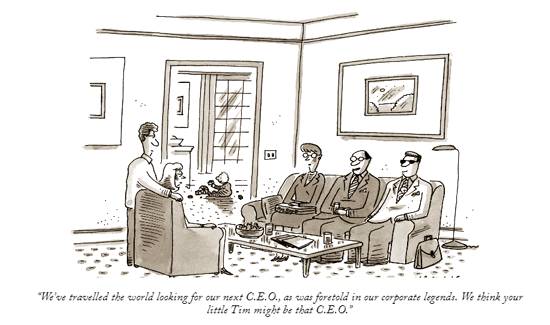
9. Time to sell up?
If you live at or less than 10m from sea level you might want to plan to sell out (to a sucker?) and relocate to higher ground. The risk is not high in the next decade or so, but increasingly low lying land is sure to loose value. A bit like being on lease-hold land where the landowner get repossession at the end of the lease. That is not value enhancing. Certainly your insurance company is likely to lose interest.
This is from Anders Levermann, a climate scientist at the Potsdam Institute for Climate Impact Research, and Professor of the Dynamics of the Climate System at the Institute for Physics and Astrophysics, Potsdam University, Germany.
Recent satellite observations have confirmed the accuracy of two independent computer simulations that show that the West Antarctic ice sheet has now entered a state of unstoppable collapse. The planet has entered a new era of irreversible consequences from climate change. The only question now is whether we will do enough to prevent similar developments elsewhere.
What the latest findings demonstrate is that crucial parts of the world’s climate system, though massive in size, are so fragile that they can be irremediably disrupted by human activity. It is inevitable that the warmer the world gets, the greater the risk that other parts of the Antarctic will reach a similar tipping point; in fact, we now know that the Wilkes Basin in East Antarctica, as big or even bigger than the ice sheet in the West, could be similarly vulnerable.
There are not many human activities whose impact can reasonably be predicted decades, centuries, or even millennia in advance. The fallout from nuclear waste is one; humans’ contribution to global warming through greenhouse-gas emissions from burning fossil fuels, and its impact on rising sea levels, is another.

10. Today's quote
"The future ain't what it used to be." - Yogi Berra
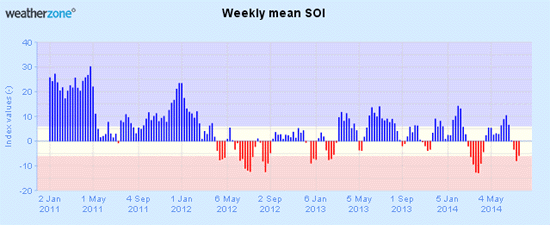

8 Comments
#9 Old, and now refuted, news.
It's not that the glaciers are n't sliding towards the sea (the definition of a glacier, BTW).
Or that the study is the result of 'models'
Or that the timescale (modelled) is 200-900 years.
It's that our naughty lass (Gaia by name) has placed Volcanoes under one of the big glaciers (Thwaites) and turned up the gas.
Some background on more recent research.....published by researchers at the Institute for Geophysics at The University of Texas at Austin (UTIG) reporting in the Proceedings of the National Academy of Sciences.
"Geothermal heat contributed significantly to melting of the underside of the glacier, and it might be a key factor in allowing the ice sheet to slide, affecting the ice sheet’s stability and its contribution to future sea level rise." "The cause of the variable distribution of heat beneath the glacier is thought to be the movement of magma and associated volcanic activity arising from the rifting of the Earth’s crust beneath the West Antarctic Ice Sheet." The findings significantly change the understanding of conditions beneath the West Antarctic Ice Sheet where accurate information has previously been unobtainable. “It’s the most complex thermal environment you might imagine,” said co-author Don Blankenship, a senior research scientist at UTIG and lead author Dusty Schroeder’s Ph.D. adviser. “And then you plop the most critical dynamically unstable ice sheet on planet Earth in the middle of this thing, and then you try to model it. It’s virtually impossible.” More humility. Less scare-mongering.
Um the ice is melting. Sure geothermal heat may have contributed to some areas of the melting but even if it did whats your point. Ha you idiots your house isn't underwater because of global warming all by itself there were some other factors at play as well check mate climate scientists.
Now while I disagree with nearly everything you say it's not because you are stupid. I agree that the truth normally lies somewhere between the extreme views on an issue. It will always be hard for both sides to get over their confirmation bias. I think Global warming is a serious issue and am probably younger than you so the effects of global warming have more time to affect me. From your comments I get the idea that you think climate change is real and "mad-made" but is not really that serious. You may be right but the downside risk that you are wrong is a very big risk. I also understand that the downside risk to my action of mitigation is to slow economic growth for possibly no reason. (I personally am very skeptical of the "rising tide raises all boats" agrument however).
Both sides of the argument will see what evidence they want to see. There are people who believe in God and see Jesus on their toast. Surely the issue comes down to which outcome has the most risk. Slower economic 'growth' or climate change and all that comes with it.
Interested in your thoughts
Well then if you are so convinced, buy lots of coastal property.
On the other hand you could look at all the other glaciers that are melting...elswhere.
Volcanic action as well?
http://www.businessinsider.com/greenland-made-me-care-about-climate-201…
yeah right.
regards
PS if you read the actual science it shows that there is possibly a bigger effect than modelled so far but it doesnt accont fo all the glaciers melting all over the world.
PPS The point that sea levels are rising doesnt change, whatever the cause.
Some context, guys.
- I live right by the sea, some (count 'em!) 3 m above MHWS.
- The timescale for the modelled sea rise is 200-900 years (error bands not disclosed)
- The average life of a domestic residential property (structure) is < 100 years, as evidenced by the relative scarcity of 100+ y.o. houses.
- The average life of commercial buildings is less: 30-50 years.
- Christchurch (some areas, anyways) has already experienced the equivalent of two centuries sea rise: 400-500mm drop in some land levels.
What can we conclude from this?
- Natural churn in rebuilding (either residential or commercial) will be able to take heed of conditions then existing and build where, and how, to suit.
- Insurance, being essentially pooled risk assessment, will follow the building assets, wherever they may be at any given period.
- There's no immediate need to worry. I'm certainly not.
- Christchurch is still, you may have noticed, a going concern.
For a working example, see London. Being situated at the bottom of a land mass experiencing land drop via isostatic rebound from the last Ice Age, it has a couple of thousand years' of adaptation to constantly rising effective sea levels under its belt.
Adaptation.... the key word. Humans are quite good at it.
One problem with your argument. Most of the (present) value of property in desirable areas is in the land, not the buildings. Especially so in popular residential and retail areas.
That value is on the move.
Literally.
Another problem is positive feedback. Isostatic rebound takes tens of thousands of years to run its course and tails off. Sea level rise is almost certainly going to be non-linear and in the medium term will approximate to exponential growth.
None of the official predictions are realistic because they don't take into account presently unquantifiable postive feedbacks like:
- methane release from tundra and the Arctic Ocean.
- Increasing albedo due to ice loss.
- peat and forest decompostion.
- etc.
The news is only going to get worse but the low-lying real estate problem will be resolved by the insurance companies and that is already happening.

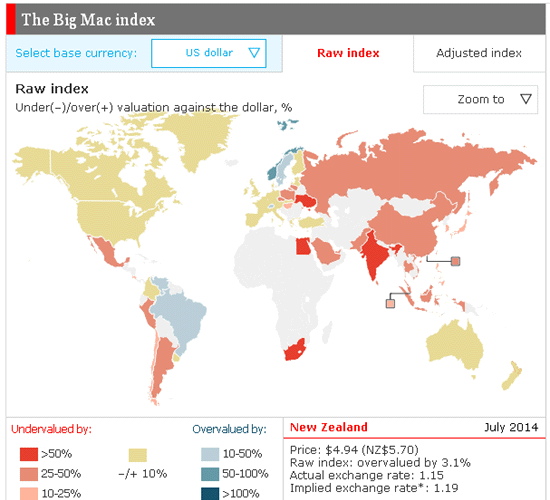
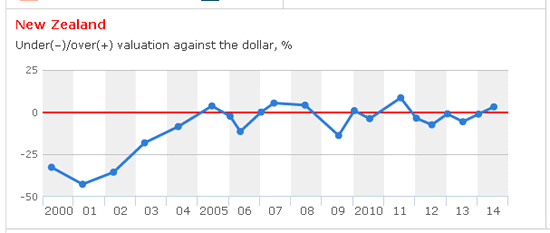
We welcome your comments below. If you are not already registered, please register to comment.
Remember we welcome robust, respectful and insightful debate. We don't welcome abusive or defamatory comments and will de-register those repeatedly making such comments. Our current comment policy is here.